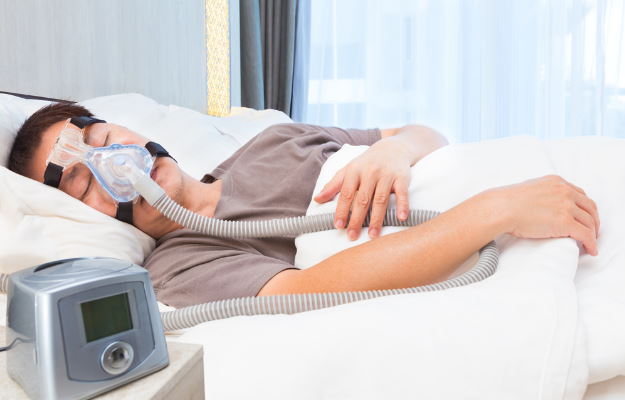How is Central Sleep Apnea Diagnosed by Medical Professionals?
Central sleep apnea treatment is a sleep disorder characterized by interruptions in breathing during sleep, caused by a failure of the brain to transmit proper signals to the muscles responsible for breathing. This condition can have serious consequences for one's health and quality of life, making its accurate diagnosis and effective treatment of utmost importance. In this article, we will delve into the various methods medical professionals in Houston employ to diagnose and treat Central Sleep Apnea.
Understanding Central Sleep Apnea:
Before exploring the diagnostic and treatment procedures for Central Sleep Apnea, it's essential to grasp the fundamentals of the condition. Unlike Obstructive Sleep Apnea (OSA), where a physical obstruction in the airway leads to interrupted breathing, CSA primarily involves the brain's inability to send the necessary signals to the respiratory muscles.

Diagnosis of Central Sleep Apnea:
- Clinical Evaluation: The journey to diagnosing Central Sleep Apnea typically begins with a thorough clinical evaluation. Patients in Houston sleep apnea who suspect they may have CSA consult sleep specialists or pulmonologists who specialize in sleep medicine. During this evaluation, the medical professional will gather the patient's medical history, focusing on their sleep patterns, symptoms, and any pre-existing conditions that may contribute to CSA.
- Polysomnography (PSG): A critical diagnostic tool for CSA is polysomnography, which involves an overnight sleep study. Patients stay in a sleep lab while multiple parameters are monitored, including brain activity, eye movement, muscle tone, heart rate, and oxygen levels. PSG allows medical professionals to identify the interruptions in breathing and determine whether they are indeed caused by Central Sleep Apnea.
- Home Sleep Apnea Testing: In some cases, when it's challenging for patients to undergo an in-lab polysomnography, a portable device may be used for home sleep apnea testing. This option can provide valuable information for diagnosing CSA, especially if a patient's symptoms are consistent with the condition.
- Continuous Positive Airway Pressure (CPAP) Titration: This test is typically recommended if CSA is suspected. It involves the use of a CPAP machine during a sleep study to assess whether applying positive airway pressure can improve breathing patterns. This can help differentiate between CSA and other sleep disorders.
Treatment of Central Sleep Apnea:
Once a diagnosis of Central Sleep Apnea has been confirmed by medical professionals in Houston, the next step is to initiate an appropriate treatment plan tailored to the patient's specific needs. The primary goal of treatment is to improve the patient's breathing during sleep and alleviate the associated symptoms.

- Adaptive Servo-Ventilation (ASV): ASV is a specialized type of positive airway pressure therapy that adjusts the airflow to match the patient's breathing patterns. This technology is particularly effective for treating CSA, as it helps regulate the respiratory effort and ensures a consistent breathing rhythm throughout the night.
- Medications: In certain cases, medications may be prescribed alongside other treatments. For example, the use of acetazolamide, a diuretic, may stimulate breathing and improve oxygen levels in patients with CSA.
- Lifestyle Modifications: Patients are often advised to make lifestyle changes that can positively impact their condition. This may include weight management, avoidance of alcohol and sedatives, and maintaining a consistent sleep schedule.
- Behavioral Therapy: Cognitive Behavioral Therapy for Insomnia (CBT-I) can be beneficial for patients with CSA, helping them address underlying sleep-related issues that exacerbate their condition.
Conclusion:
Central Sleep Apnea can significantly affect an individual's quality of life, but with the help of medical professionals in Houston, accurate diagnosis and effective treatment options are available. By seeking clinical evaluation, undergoing polysomnography, and exploring various treatment modalities, patients with CSA can regain control over their sleep and their lives. If you suspect you or a loved one may have Central Sleep Apnea, don't hesitate to consult with a sleep specialist in Houston to embark on a journey toward improved sleep and overall well-being.
Comments
Post a Comment